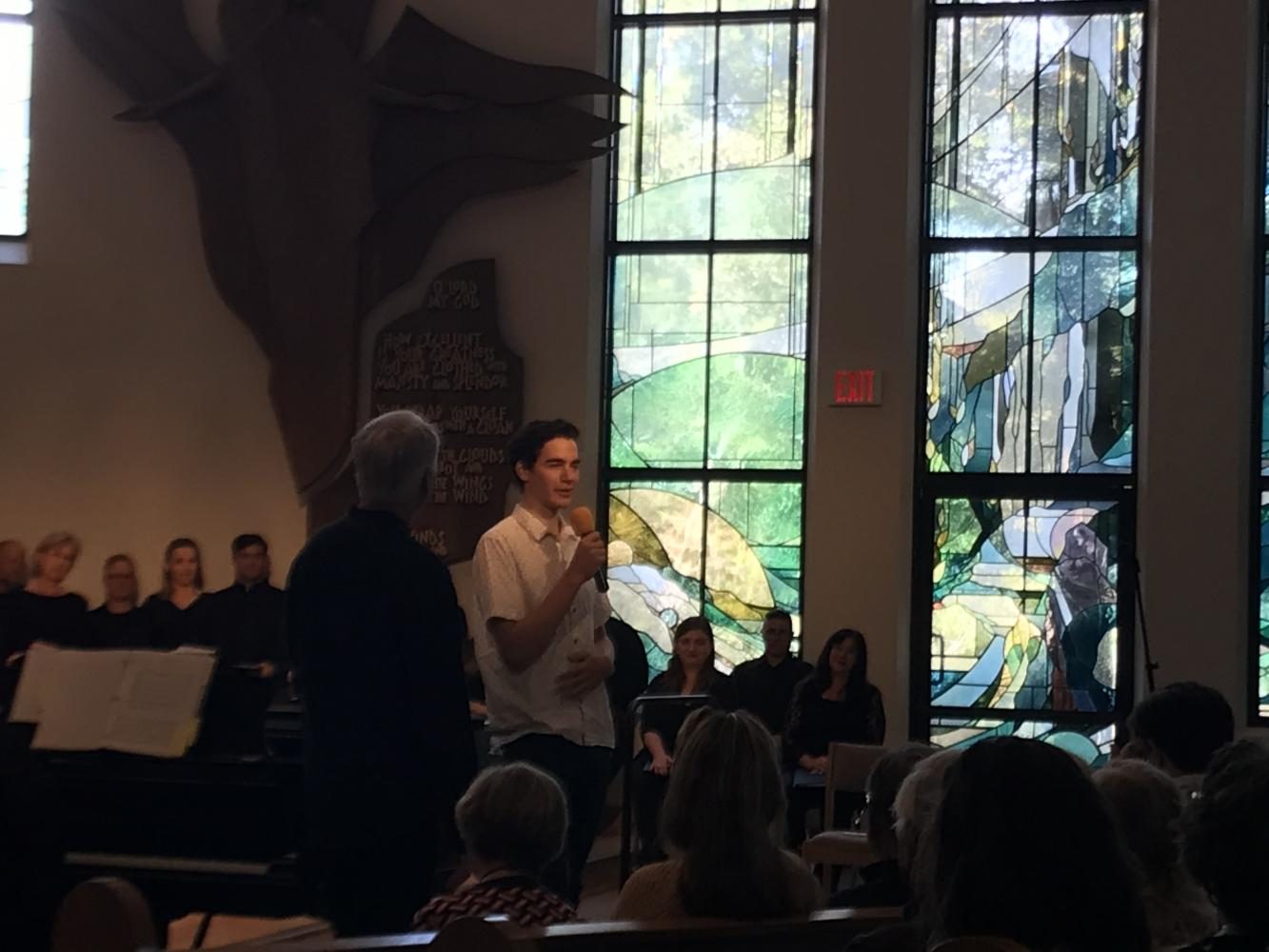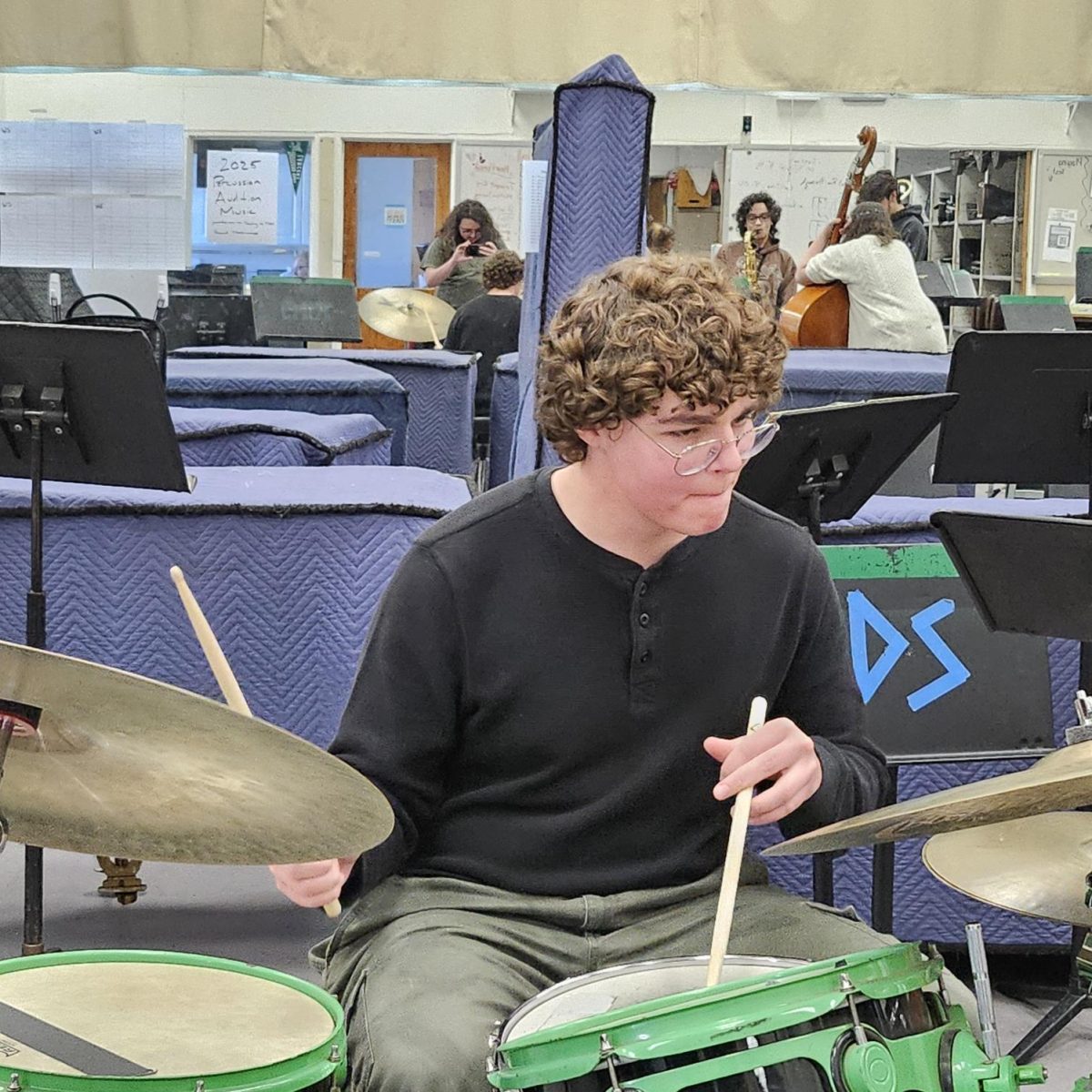Last summer, junior Jackson Waters went to the Oregon Bach Festival Composer Symposium at the University of Oregon, a program usually reserved for college level composers. However, Waters was the exception. After a summer of working among college students, Wyant Morton, conductor of Arete Vocal Ensemble and long-time family friend of Waters, found out that he as a highschooler got into the program and asked Jackson to write something for Arete.
Waters, a member of TOHS band, got into composing at a young age.
“I started fooling around on trumpet and piano and writing melodies, and I just really enjoyed it. I didn’t think too much of it,” Waters said. “My first piece was in honor of my sister’s friend who committed suicide a few years back, and my freshman year the TOHS band premiered it. That’s when I really wanted to start composing.”
Because he needed to write a choral piece for Arete, Waters knew he would need lyrics, which he had no experience writing, so he turned to sophomore Madeline Biggs for help.
“I used to write a lot when I was little… As I grew up I didn’t tell anyone that I liked to write because I thought it was stupid but I would do it anyway because I couldn’t stop myself,” Biggs said.
While Biggs has had the tendency to gravitate toward essay writing, her recent collaboration with Waters inspired her to delve into poetry.
“It’s a nice way of expressing yourself when music isn’t the biggest thing in your life,” Biggs said.
The piece draws inspiration from the destruction the Woolsey fire brought. Biggs started writing once the fires started to calm down, but she needed a title. The first thing that came to Waters’ mind was “Dust.”
“Immediately my mind went to the fires and what had just happened in our community,” Biggs said.
The piece is four stanzas long with the first two focusing on the destruction and mourning the losses the fires brought. The second two stanzas, however, focus on rebuilding.
“One person stands up and they turn around and help the next person stand up, and finally everyone that is left behind is healing,” Biggs said. “Sure, we did lose a lot, but … everyone needs to believe in each other in order to heal fully and now the hills are green and people are building houses again. It’s really inspiring to see that what I wrote about is what I can see in our community now.”
The first time Waters heard his piece come to life from paper was at a rehearsal with the ensemble.
“When I was going to the rehearsal I was incredibly nervous because I wasn’t sure how it was going to sound, and I didn’t know much about the ensemble. Once I heard them play the first couple of notes I just relaxed, and then I got really happy. I actually could not stop smiling; it was really cool,” Waters said.
However, Biggs did not hear it until Sunday’s performance.
“It was insane. I didn’t know what I was supposed to expect. I knew it would be good because [Waters] is a good composer, but I never expected it to be as intense as it was,” Biggs said.
In musical terms, the first half of the piece is in D-minor while the second half in in F major to represent the change in tone.
“Everything is becoming good again and I really wanted to implement that thought into the music” Waters said.
Both Waters and Biggs agree that the process of creating Dust was intense but well worth the outcome.
“Writing,” Waters said, “It doesn’t come quickly.”






